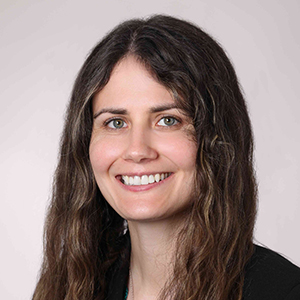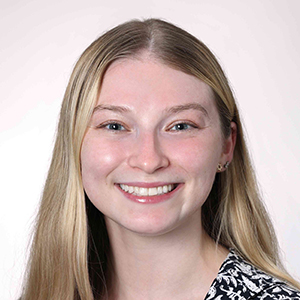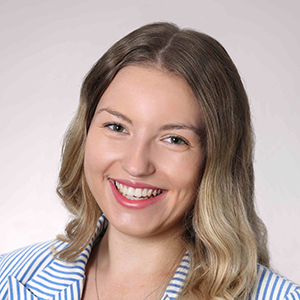Google Scholar search for Chris Gunter
Wright JR, Astrovskaya I, Barns SD, Goler A, Zhou X, Shu C, Snyder LG, Han B; SPARK Consortium; Shen Y, Volfovsky N, Hall JB, Feliciano P, Chung WK. Return of genetic research results in 21,532 individuals with autism. Genet Med. 2024 Oct;26(10):101202. doi: 10.1016/j.gim.2024.101202. Epub 2024 Jun 29. [PubMed]
Wang A, Little ID, Carter D, Pham S, Piper M, Ramirez-Rena GM, Telaak S, Gunter C. Provider-reported experiences, barriers, and perspectives on genetic testing as part of autism diagnosis. PLOS ONE. 2024. [PubMed]
Gunter C, Green ED. To boldly go: Unpacking the NHGRI's bold predictions for human genomics by 2030. American Journal of Human Genetics. 2023. [PubMed]
Gunter C, Solomon BD. Whither social media and clinical genetics? American Journal of Medical Genetics Part A. 2023 [PubMed]
Little ID, Koehly LM, Gunter C. Understanding changes in genetic literacy over time and in genetic research participants. American Journal of Human Genetics. 2022. [PubMed]
Xhou XP et al., Integrating de novo and inherited variants in 42,607 autism cases identifies mutations in new moderate-risk genes. Nature Genetics. 2022. [PubMed]
Gunter C, Harris, RA, Kovacs-Balint Z, Raveendran M, Michopoulos V, Bachevalier J, Raper J, Sanchez MM, Rogers J. Heritability of social behavioral phenotypes and preliminary associations with autism spectrum disorder risk genes in rhesus macaques: A whole exome sequencing study. Autism Research. 2022. [PubMed]
Shu C, Green Snyder L. Shen Y, Chung WK, SPARK Consortium. Imputing cognitive impairment in SPARK, a large autism cohort. Autism Research. 2022. [PubMed]
Wodka EL, Parish-Morris J, Annett RD, Carpenter L, Dillon E, Michaelson J, Kim SH, Landa R, SPARK Consortium, Kanne S. Co-occurring attention-deficit/hyperactivity disorder and anxiety disorders differentially affect males and females with autism. Clinical Neuropsychology. 2021. [PubMed]
Kovacs Balint Z, Raper J, Michopolouos V, Howell LH, Gunter C, Bachevalier J, Sanchez MM. Validation of the Social Responsiveness Scale (SRS) to screen for atypical social behaviors in juvenile macaques. PLoS ONE. 2021. [PubMed]
Gunter C, Sinha CB, Jaquess D. Participation in a Science Festival Promotes Inclusive Science Communication around Autism Spectrum Disorder. bioRxiv. 2021 [Preprint]
Green ED, Gunter C, Biesecker LG, Di Francesco V, Easter CL, Feingold EA, Felsenfeld AL, Kaufman DJ, Ostrander EA, Pavan WJ, Phillippy AM, Wise AL, Gupta Dayal J, Kish BJ, Mandich A, Wellington CR, Wetterstrand KA, Bates SA, Leja D, Vasquez S, Gahl WA, Graham BJ, Kastner DL, Liu P, Lyman Rodriguez L, Solomon BD, Bonham VB, Brody LC, Hutter CM, Manolio TA, & National Human Genome Research Institute. Strategic research priorities and opportunities for improving human health at The Forefront of Genomics. Nature. 2020. [PubMed]
Gunter C and Chung WK. Pediatric Genetics: Rare Is Common. CSHL Molecular Case Studies. 6(3):a00558. 2020. [PubMed]
Fombonne E, Green Snyder L, Daniels A, Feliciano P, Chung W, SPARK Consortium. Psychiatric and Medical Profiles of Autistic Adults in the SPARK Cohort. Journal of Autism and Developmental Disorders. 2020. [PubMed]
Fombonne E, Goin-Kochel RP, O’Roak BJ, SPARK Consortium. Beliefs in Vaccine as Causes of Autism Among SPARK Cohort Caregivers. Vaccine, 38(7), 1794-1803. 2020. [PubMed]
Telis N, Glassberg E, Pritchard JK, Gunter C. Public Discussion Affects Question Asking at Academic Conferences. American Journal of Human Genetics, 105(1), 189-197. 2019. [PubMed]
Wolpe PR, Rommelfanger KS; Drafting and Reviewing Delegates of the BEINGS Working Groups. Ethical principles for the use of human cellular biotechnologies. Nature Biotechnology, 35(11), 1050-1058. 2017. [PubMed]
Gunter C. Seeing the spectrum entire. Nature, 524(7565), 288-289. 2015. doi:10.1038/524288a.
Klin A, Wetherby AM, Woods J, Saulnier C, Stapel-Wax J, Klaiman C, Jones W, Rubin E, Scahill L, Call N, Bearss K, Gunter C, Courtemanche CJ, Lemieux A, Cox JC, Mandell DS, Van Decar JP, Miller RA, Shireman CL (2015). Toward Innovative, Cost-Effective, and Systemic Solutions to Improve Outcomes and Well-Being of Military Families Affected by Autism Spectrum Disorder. Yale Journal of Biology and Medicine, 88(1), 73-79. 2015. [PubMed]
MacArthur DG, Manolio TA, Dimmock DP, Rehm HL, Shendure J, Abecasis GR, Adams D, Altman RB, Antonarakis SE, Ashley EA, Barrett JC, Biesecker LG, Conrad DF, Cooper GM, Cox NJ, Daly MJ, Gerstein MB, Goldstein DB, Hirschhorn JN, Leal SM, Pennacchio LA, Stamatoyannopoulos JA, Sunyaev SR, Valle D, Voight BF, Winckler W, Gunter C. Guidelines for investigating causality of sequence variants in human disease. Nature, 508(7497), 469–476. 2014. [PubMed]
Gelbart M, Gunter C. Conference Scene: Accelerating public awareness in the age of personal genetics. Personalized Medicine, 10, 535–538, 2013. [PubMed]
Gunter C. Science: It’s a role model thing. Genome Biology, 14(2), 105. 2013. [PubMed]
Gunter C. What it’s like to be an editor at a conference. Genome Biology, 14(10), 136. 2013. [PubMed]
Gunter C, Osterrieder A. A modest proposal for an outreach section in scientific publications. Genome Biology, 13(8), 168. 2012. [PubMed]
ENCODE Project Consortium, Bernstein BE, Birney E, Dunham I, Green ED, Gunter C, Snyder M. An integrated encyclopedia of DNA elements in the human genome. Nature, 489(7414), 57-74. 2012. [PubMed]
Lamb N, Myers RM, Gunter C. Education and personalized genomics: deciphering the public’s genomic health report. Personalized Medicine, 6(6), 681-690. 2009. [PubMed]
Toronto International Data Release Workshop Authors, Birney E, Hudson TJ, Green ED, Gunter C, Eddy S, Rogers J, Harris JR, Ehrlich SD, Apweiler R, Austin CP, Berglund L, Bobrow M, Bountra C, Brookes AJ, Cambon-Thomsen A, Carter NP, Chisholm RL, Contreras JL, Cooke RM, Crosby WL, Dewar K, Durbin R, Dyke SO, Ecker JR, El Emam K, Feuk L, Gabriel SB, Gallacher J, Gelbart WM, Granell A, Guarner F, Hubbard T, Jackson SA, Jennings JL, Joly Y, Jones SM, Kaye J, Kennedy KL, Knoppers BM, Kyrpides NC, Lowrance WW, Luo J, MacKay JJ, Martín-Rivera L, McCombie WR, McPherson JD, Miller L, Miller W, Moerman D, Mooser V, Morton CC, Ostell JM, Ouellette BF, Parkhill J, Raina PS, Rawlings C, Scherer SE, Scherer SW, Schofield PN, Sensen CW, Stodden VC, Sussman MR, Tanaka T, Thornton J, Tsunoda T, Valle D, Vuorio EI, Walker NM, Wallace S, Weinstock G, Whitman WB, Worley KC, Wu C, Wu J, Yu J. Prepublication data sharing. Nature, 461(7261), 168-170. 2009. [PubMed]
Gunter C. Quantitative genetics. Nature, 456(7223), 719. 2008. [PubMed]
NCI-NHGRI Working Group on Replication in Association Studies, Chanock SJ, Manolio T, Boehnke M, Boerwinkle E, Hunter DJ, Thomas G, Hirschhorn JN, Abecasis G, Altshuler D, Bailey-Wilson JE, Brooks LD, Cardon LR, Daly M, Donnelly P, Fraumeni JF Jr, Freimer NB, Gerhard DS, Gunter C, Guttmacher AE, Guyer MS, Harris EL, Hoh J, Hoover R, Kong CA, Merikangas KR, Morton CC, Palmer LJ, Phimister EG, Rice JP, Roberts J, Rotimi C, Tucker MA, Vogan KJ, Wacholder S, Wijsman EM, Winn DM, Collins FS. Replicating genotype-phenotype associations. Nature, 447(7145), 655-660. 2007. [PubMed]









